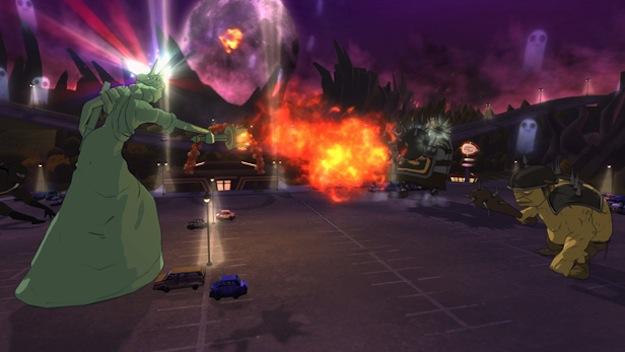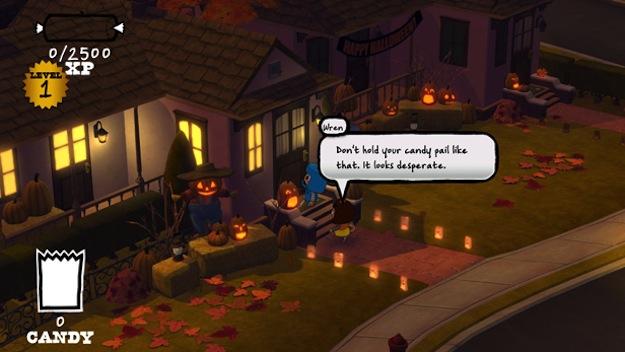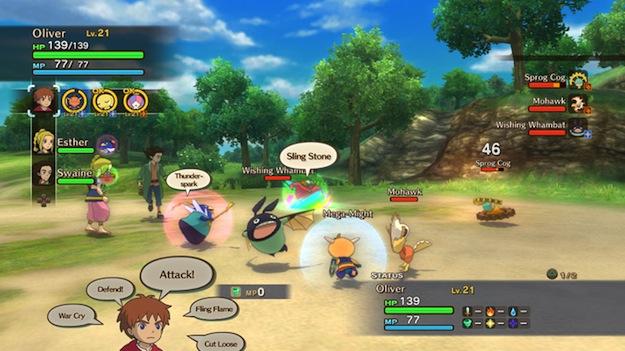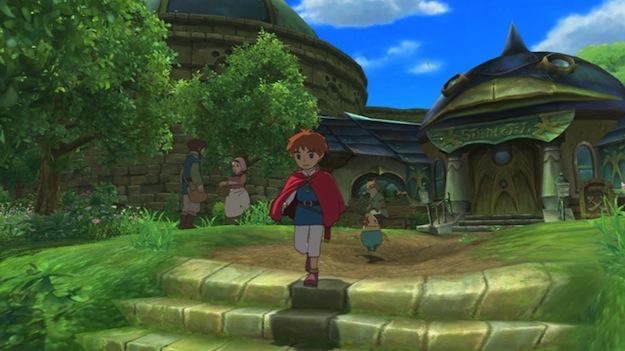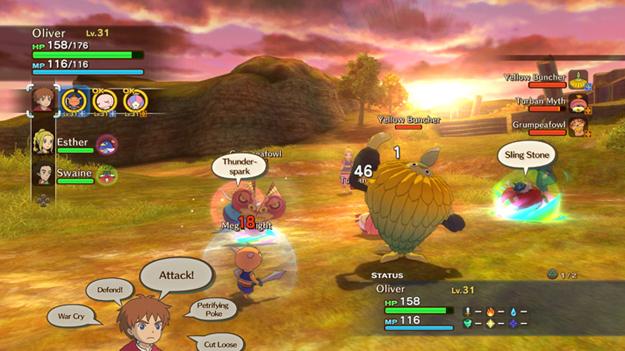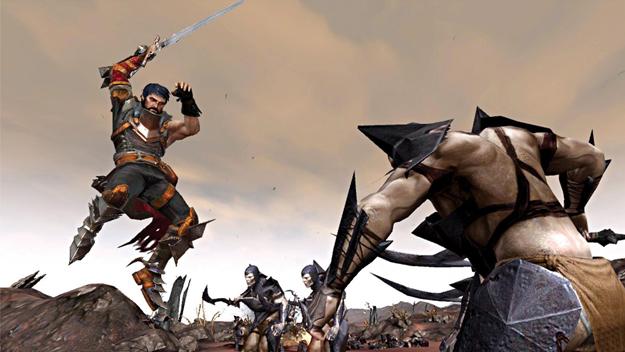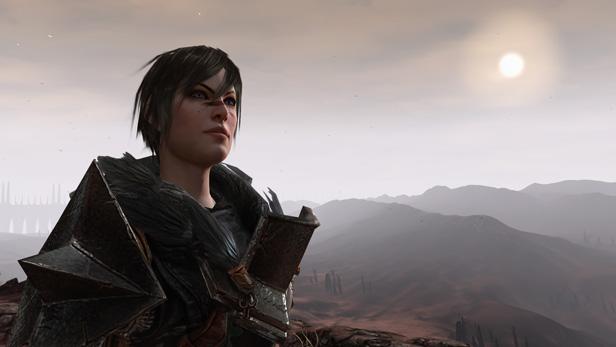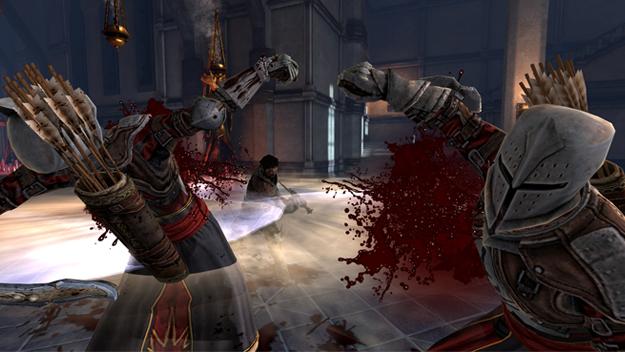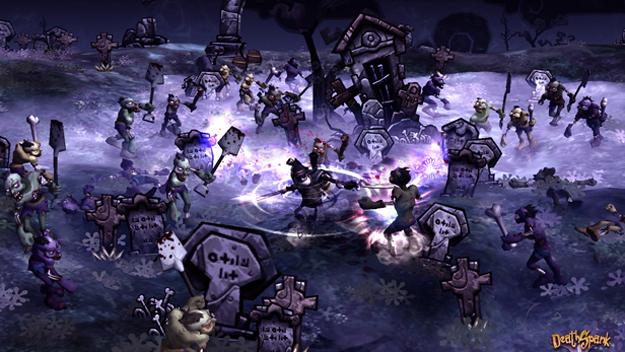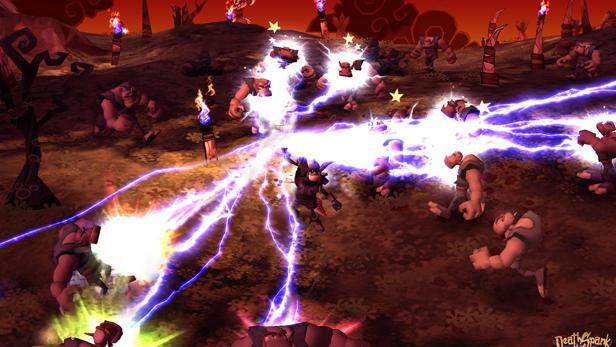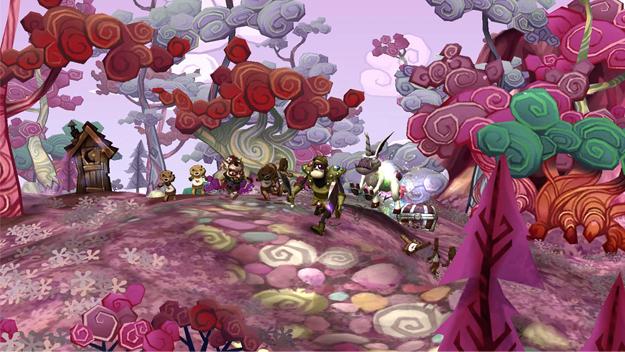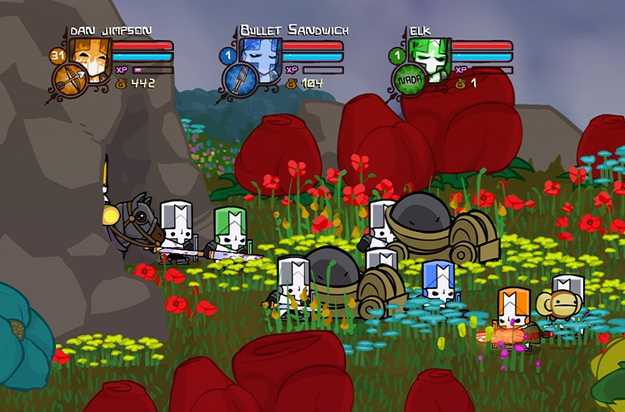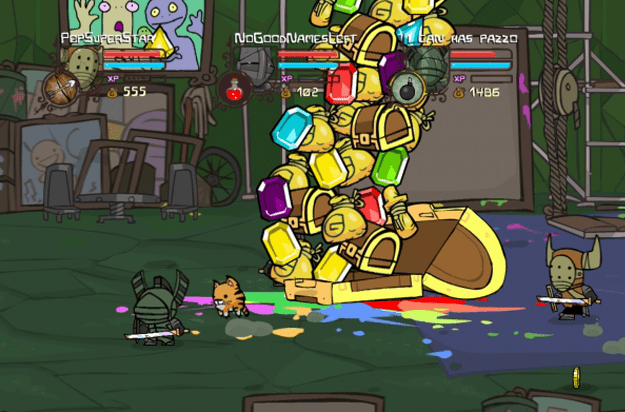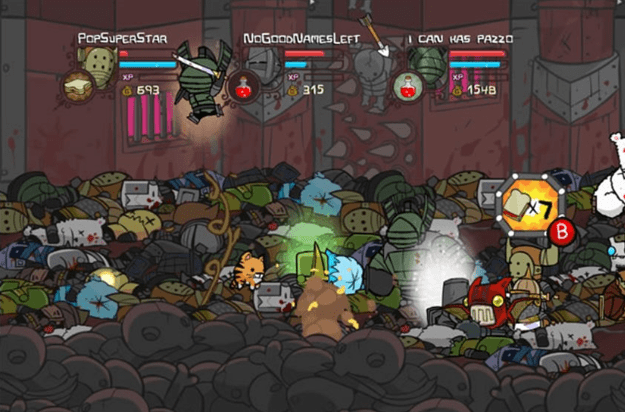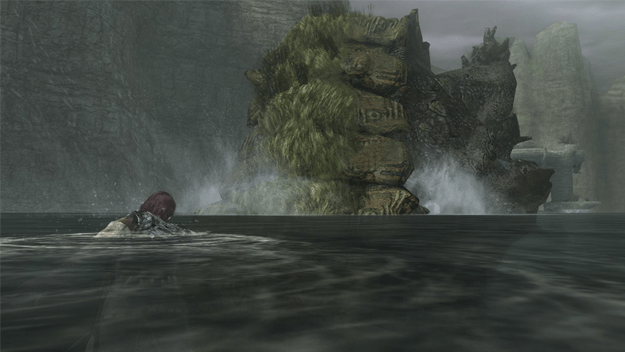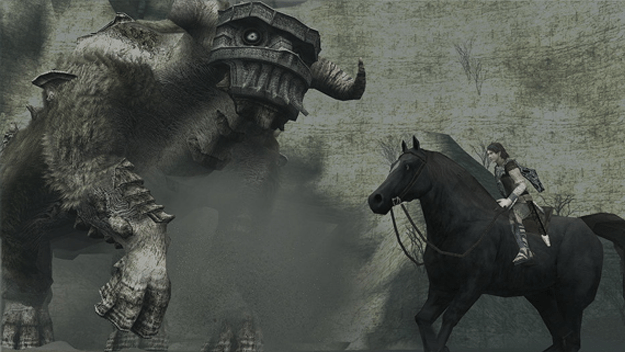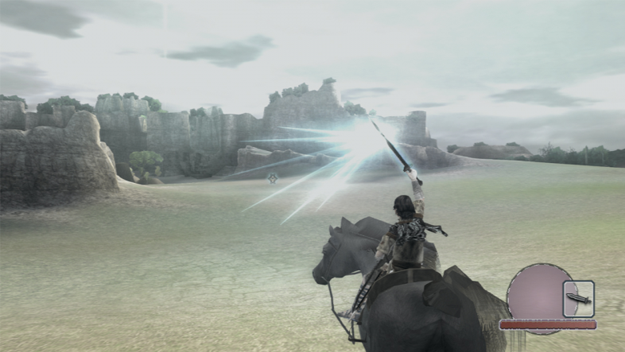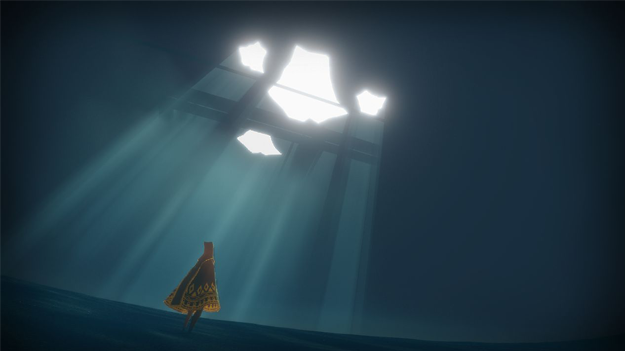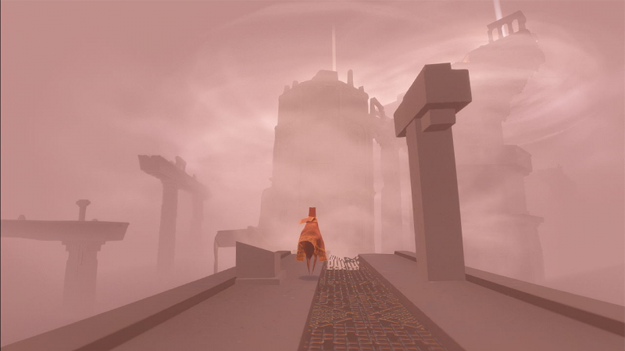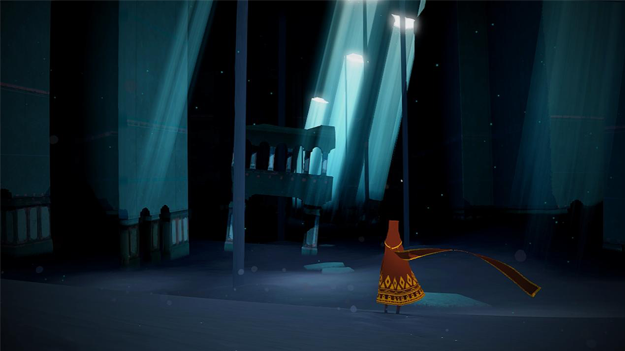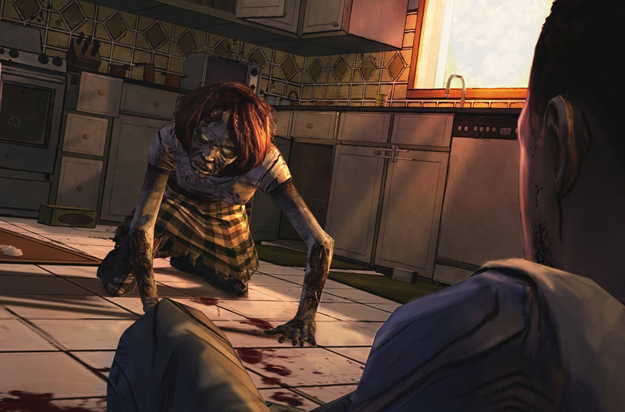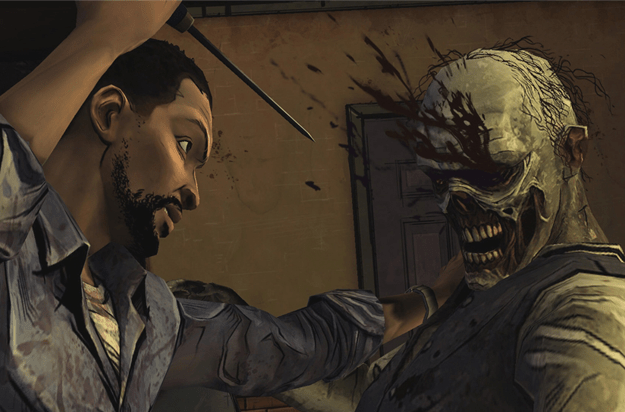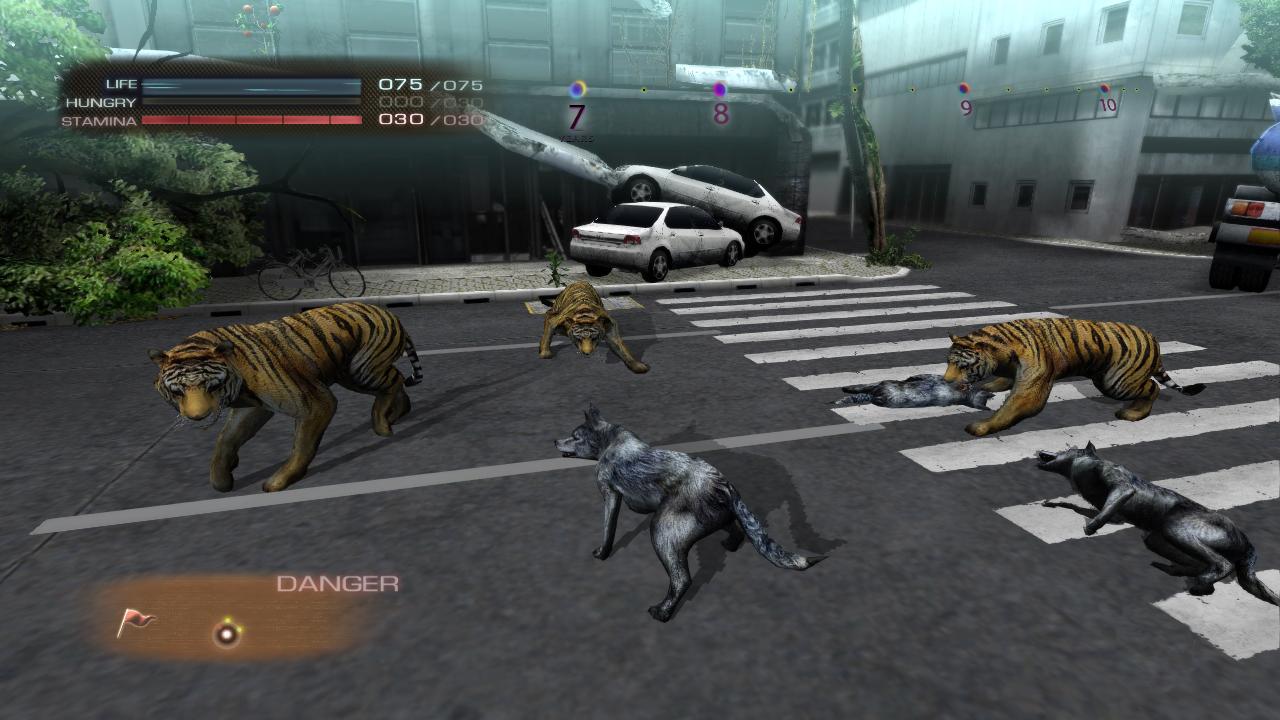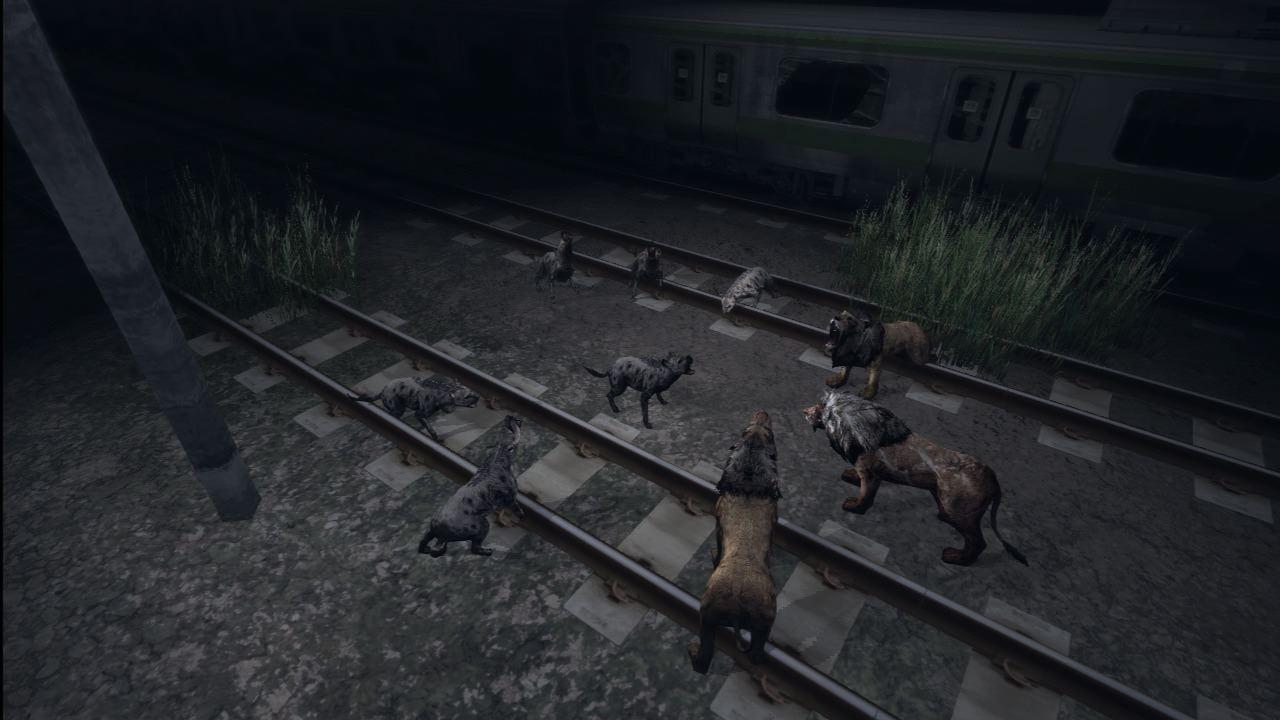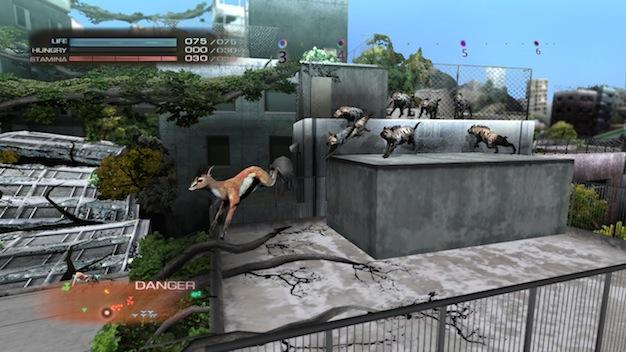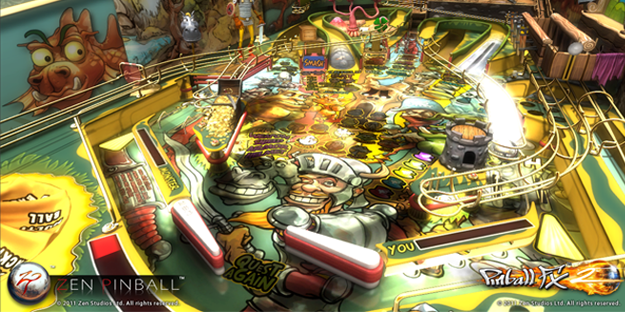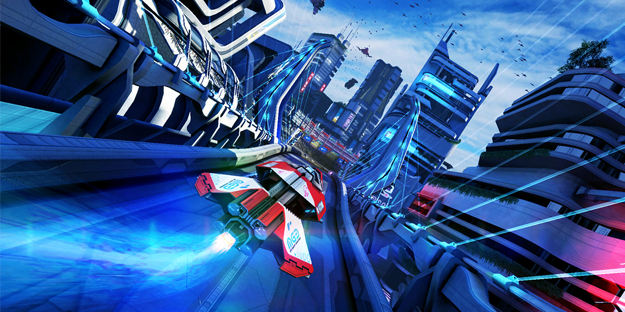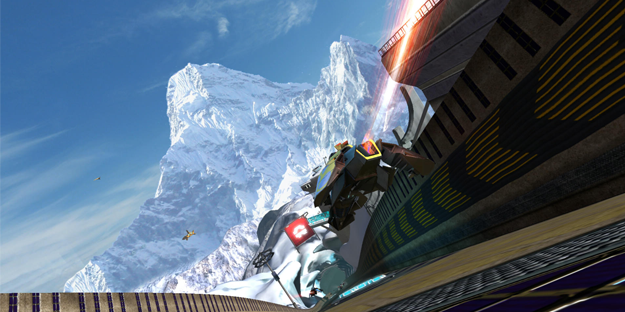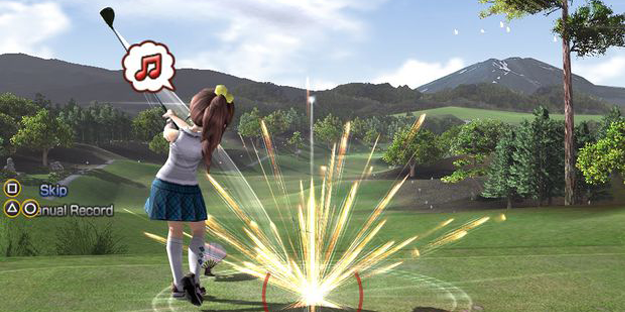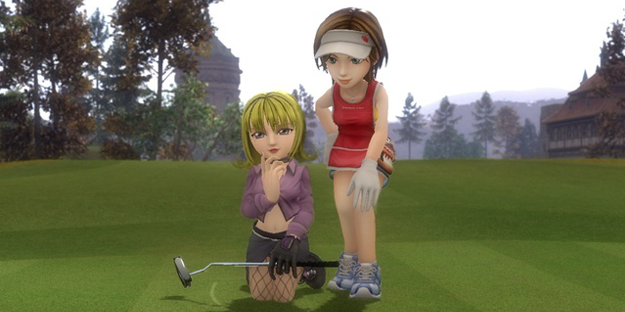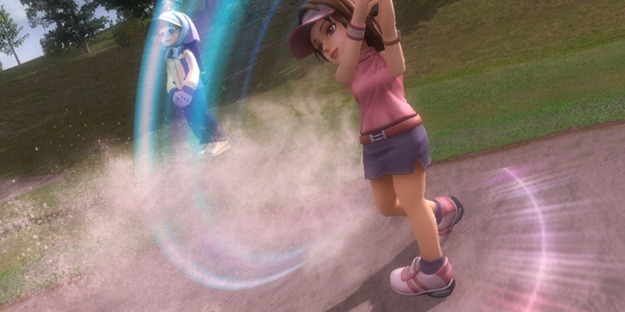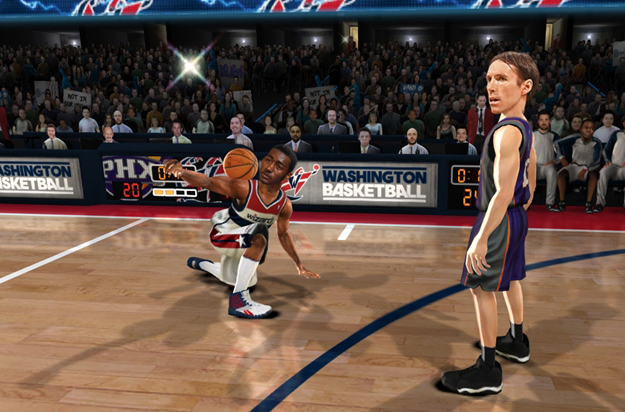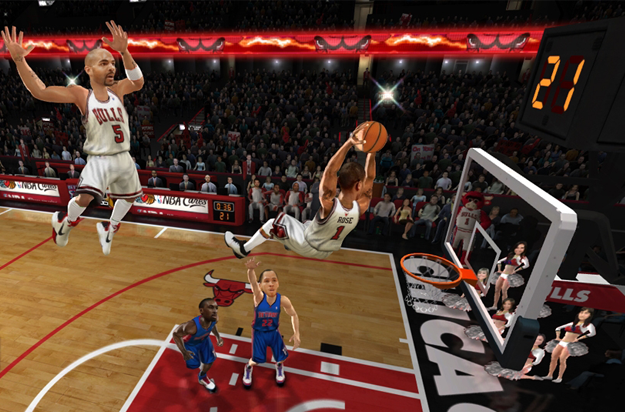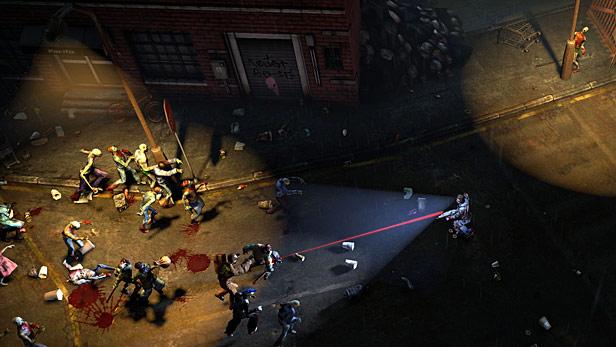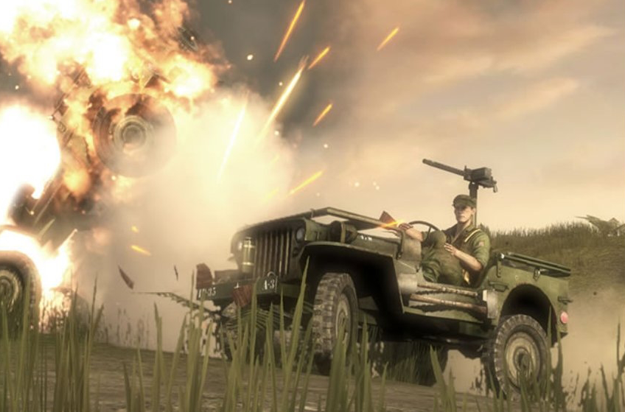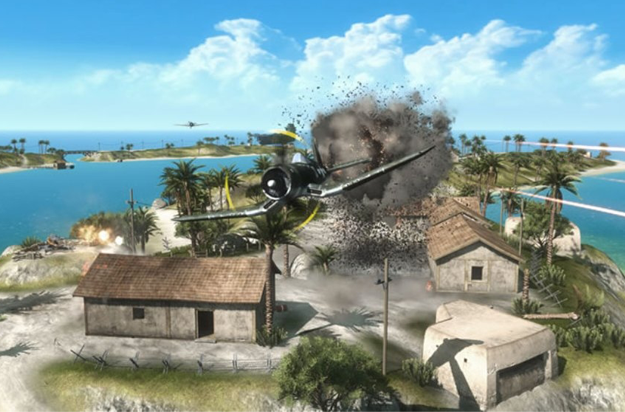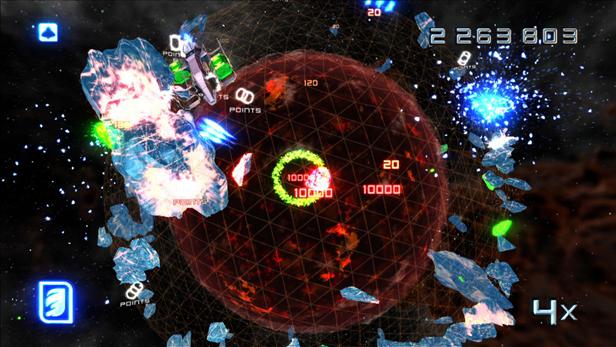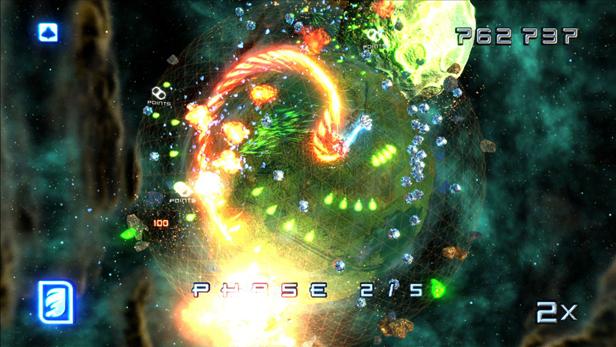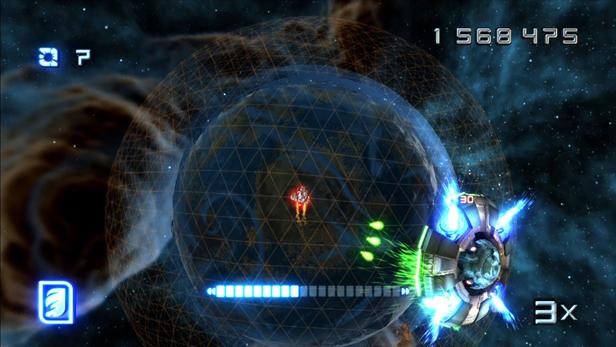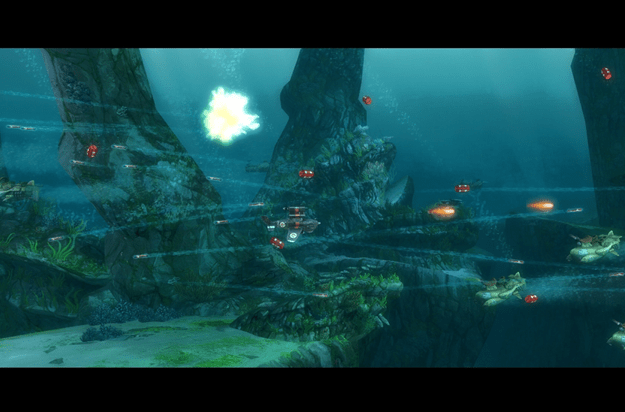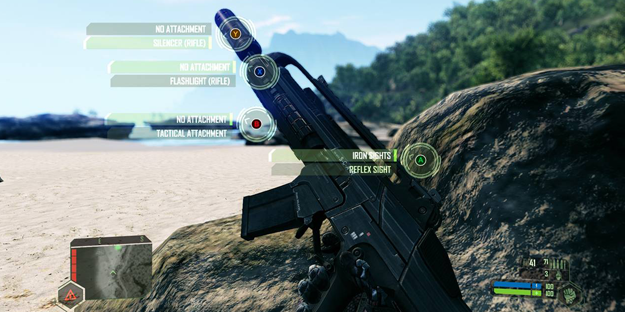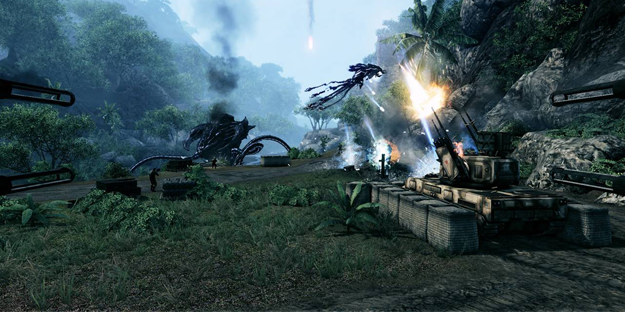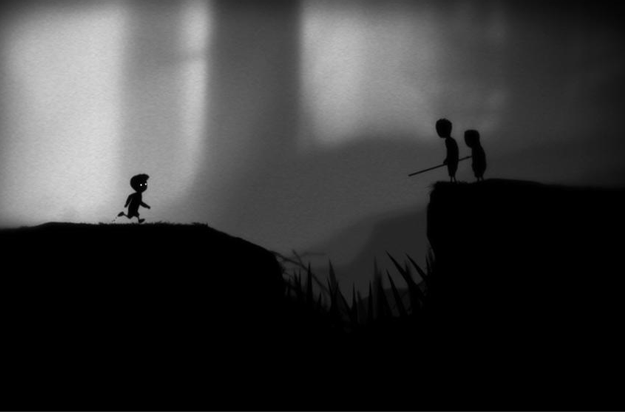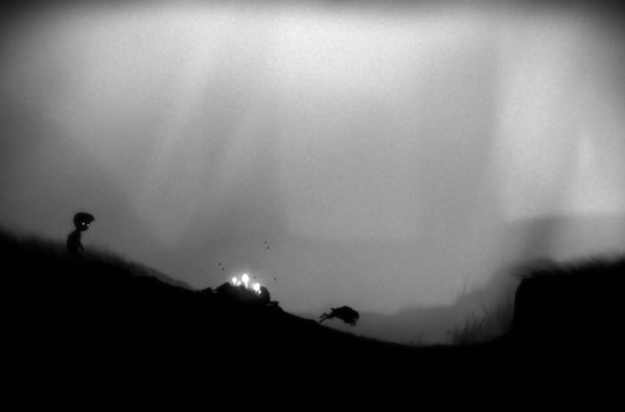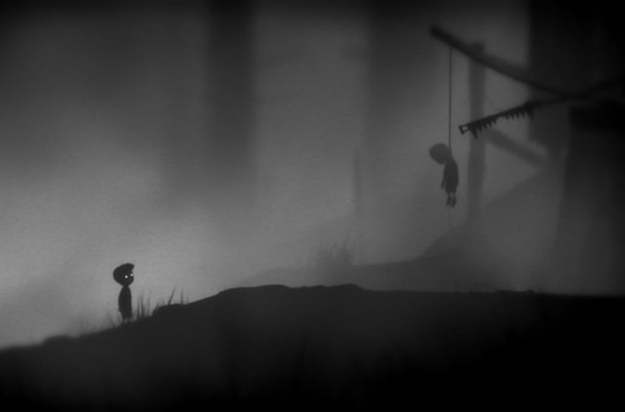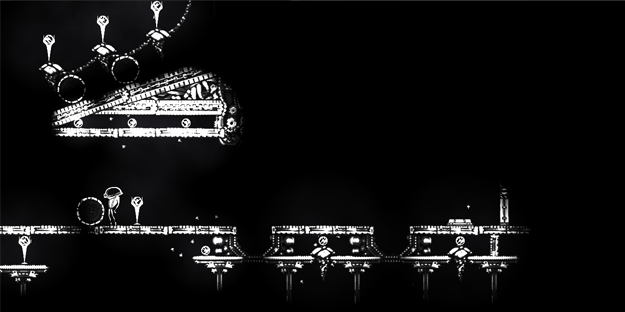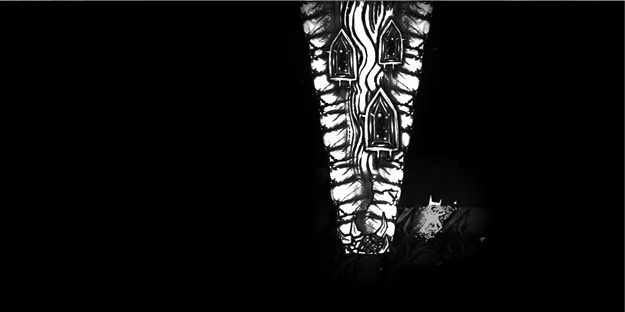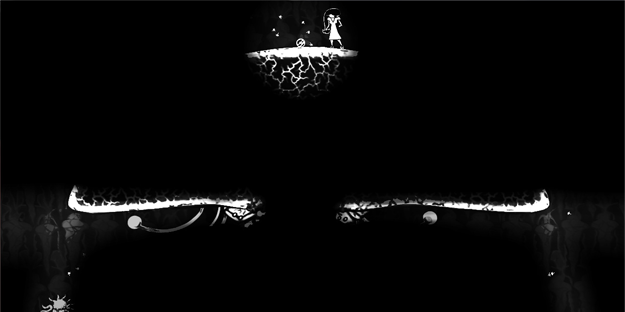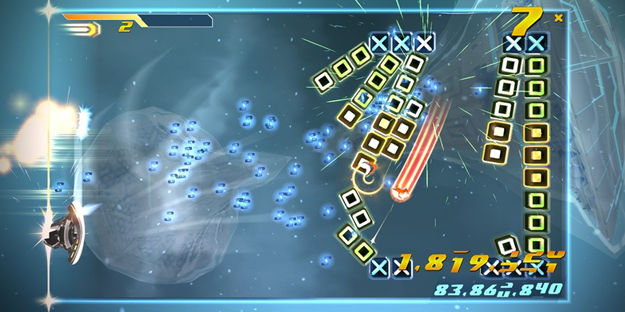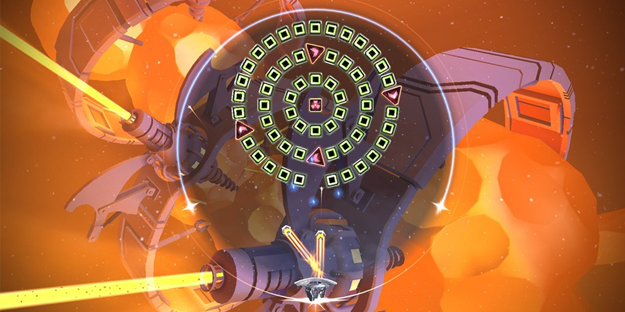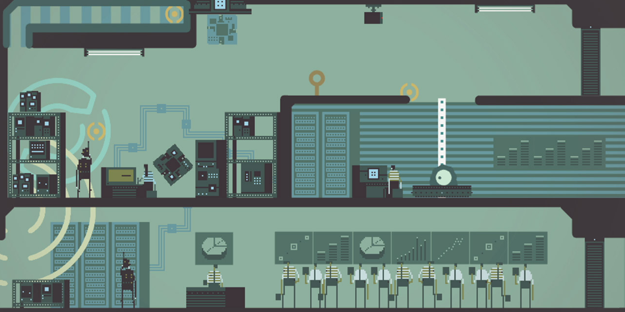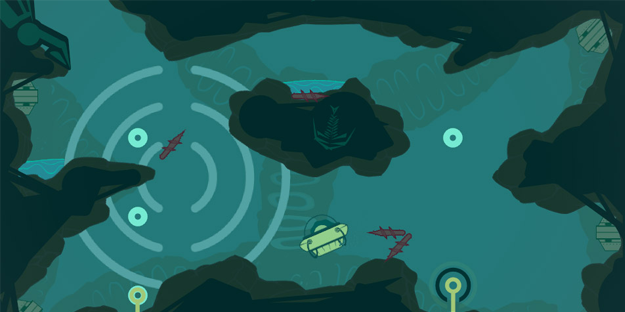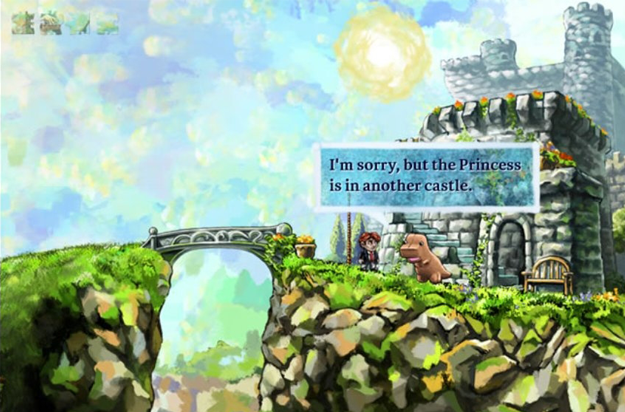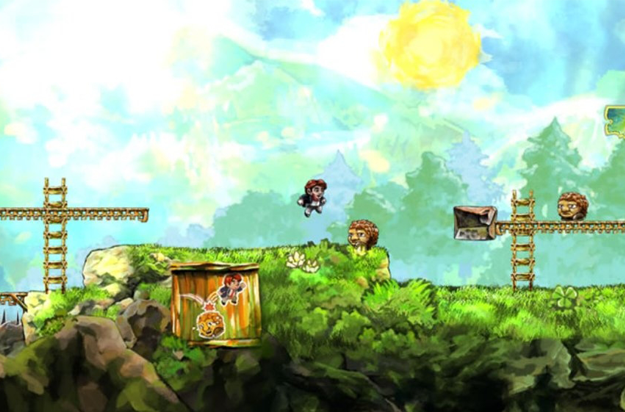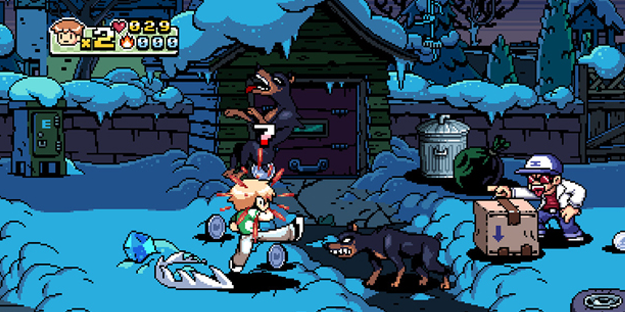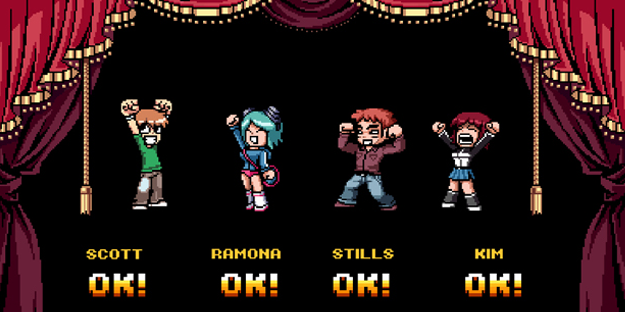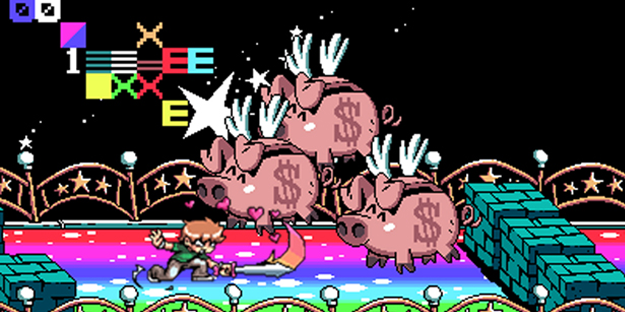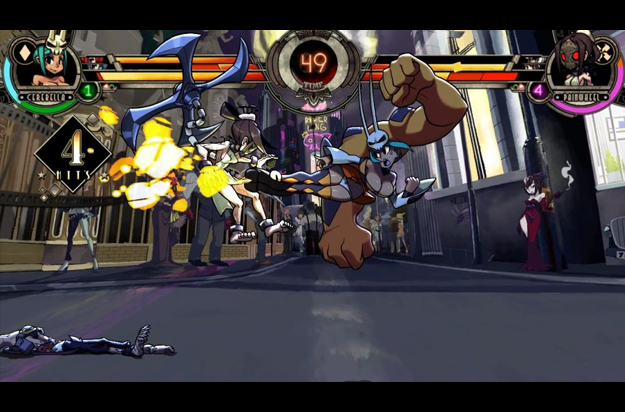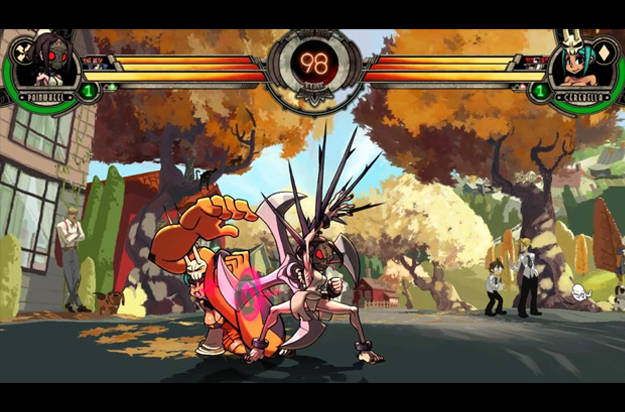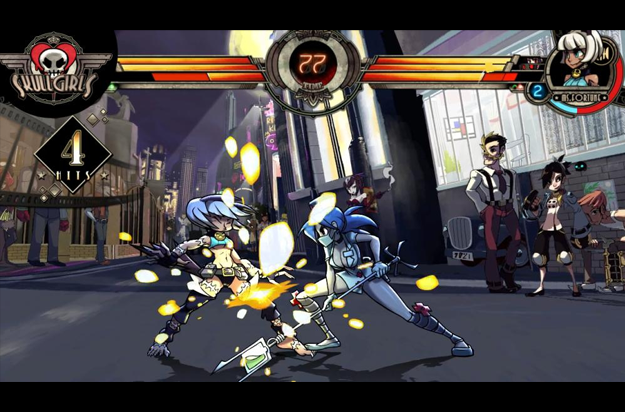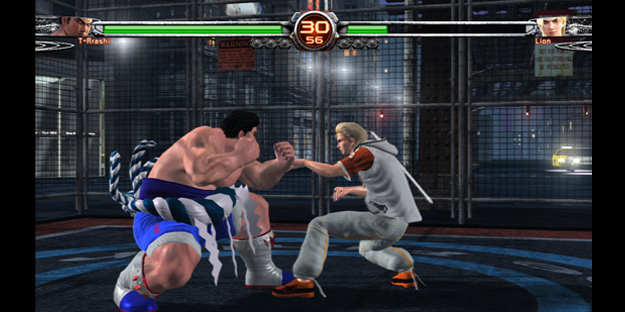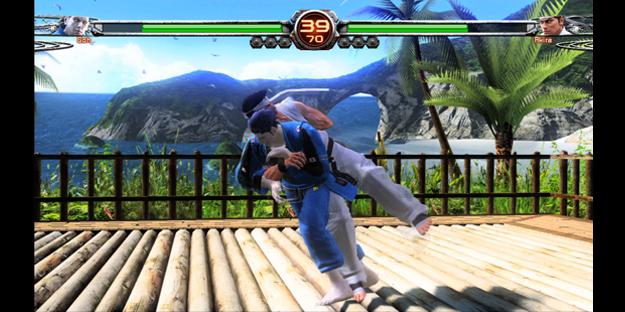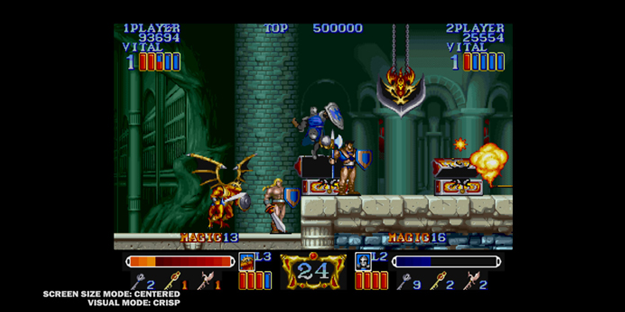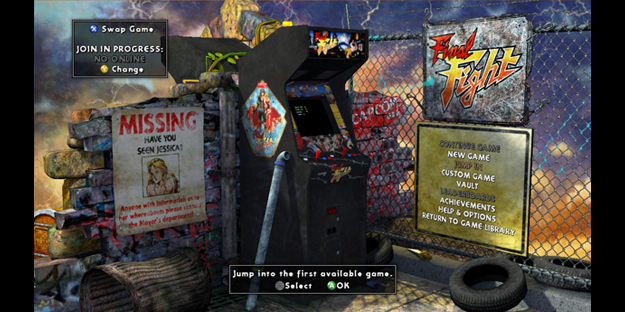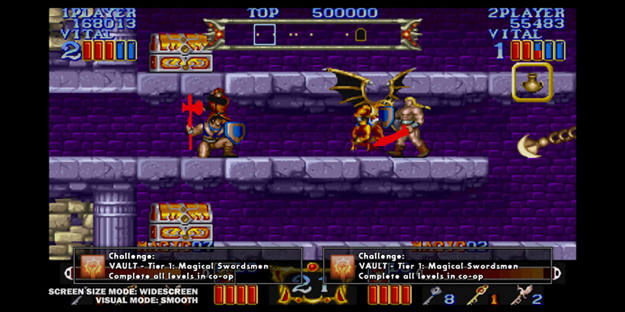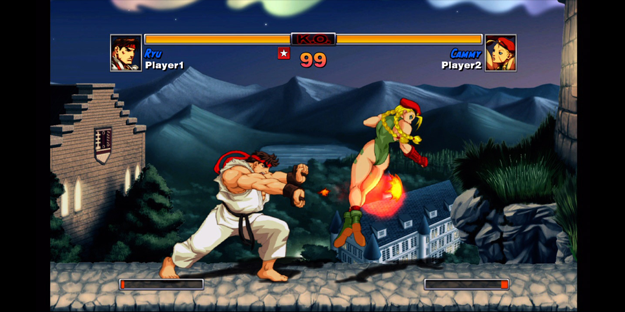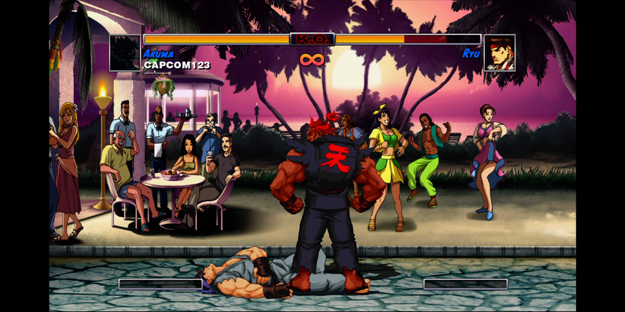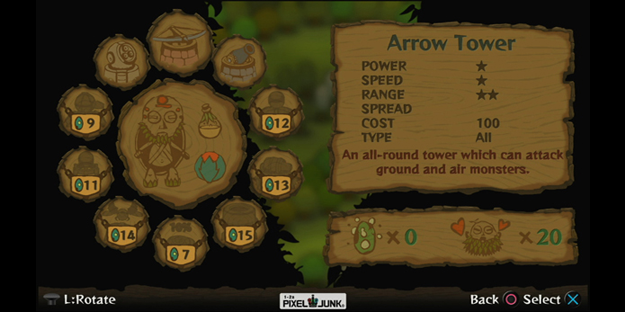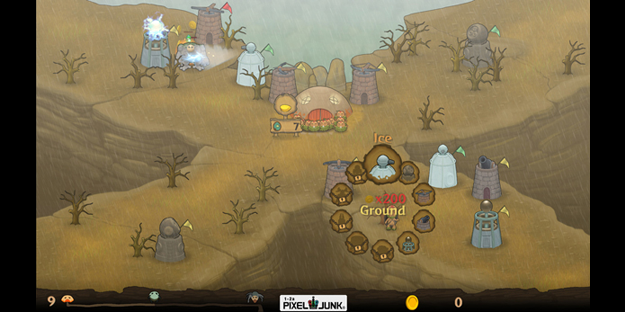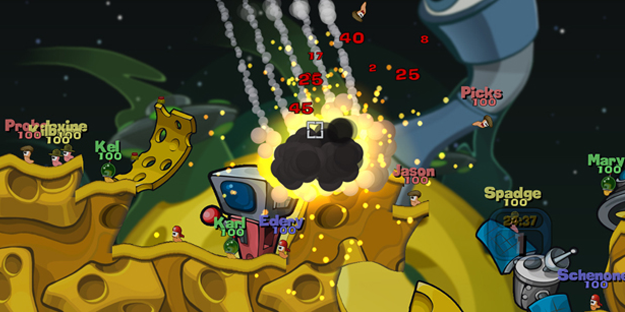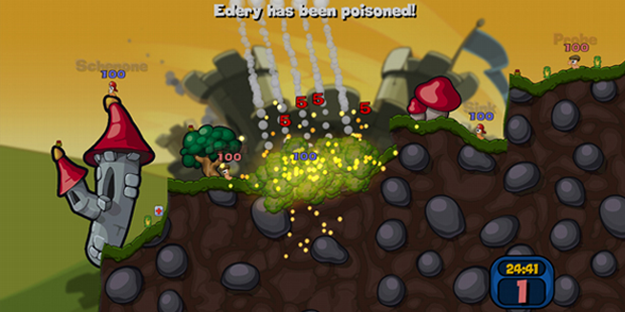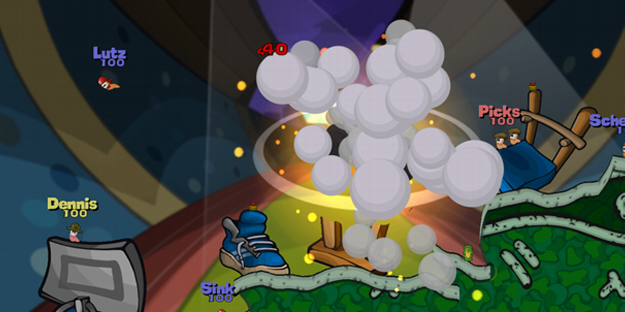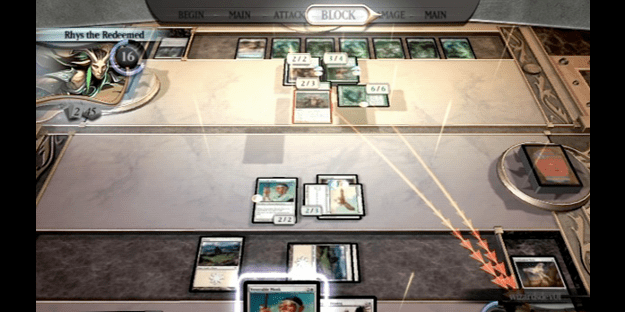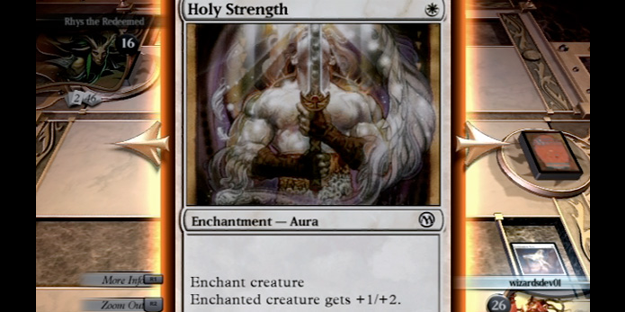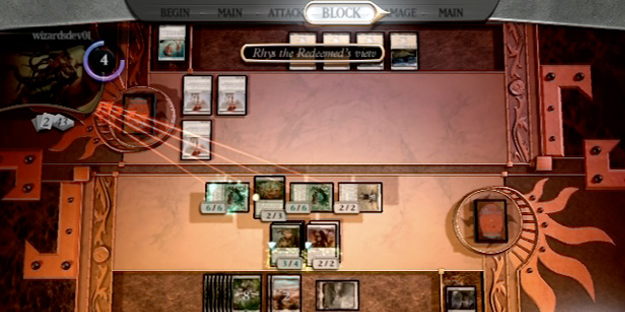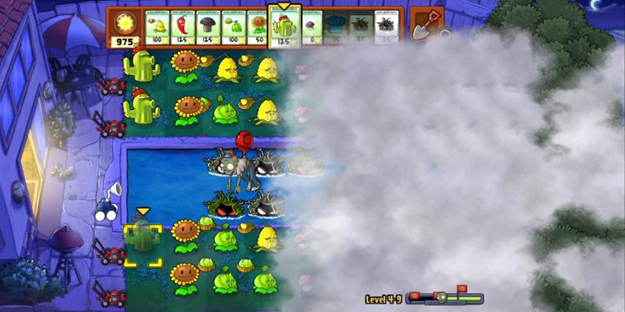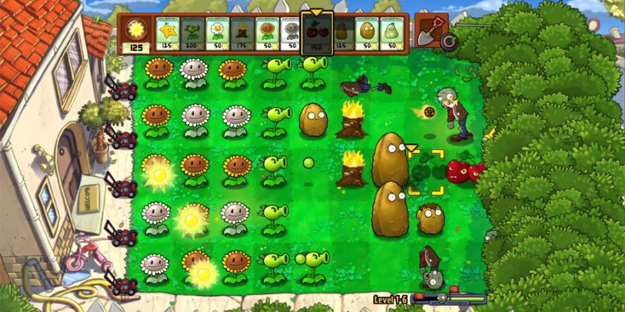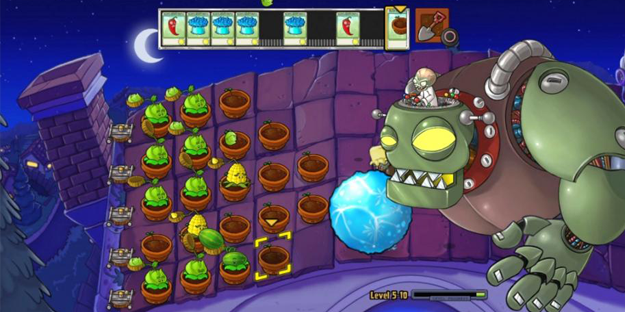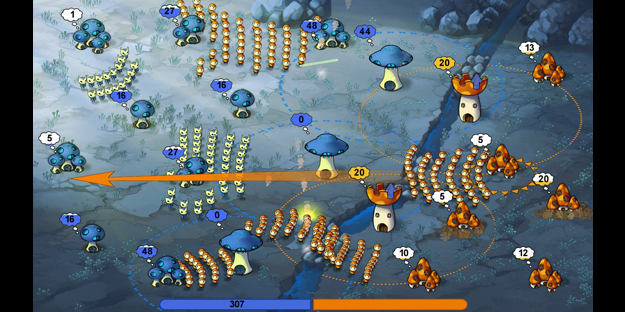
This article is periodically updated to reflect recent availability.
The Playstation Network, officially abbreviated the PSN, has had its fair share of trials and tribulations over the years. Whether it be the initial network outage in 2011 that affect 77 million registered accounts or the later-dismissed fines that followed, it’s faced stark criticism when it comes to security and reliability issues. On the other hand, the digital media service has also earned developer praise for the swarm of nuanced indie hits and multi-platform blockbusters available for download on the Playstation 3, Playstation Portable, and the Playstation Vita. It’s been around for nearly eight years, and like its Microsoft counterpart, the Xbox Live Arcade, the PSN is doused with award-winning titles and cheap alternatives with ambitions and features far greater than many found on $60 titles. It appears the days of physical discs may be numbered.
The PSN now boasts a healthy selection of titles, from role-playing adventures courtesy of Studio Ghibli to revamped renditions of some of the most beloved fighters of all time, and everything in between. Unfortunately, the service is littered with a myriad of tragically-terrible games like Jeopardy, Go! Sports Ski, and a host of other titles nowhere near worth mentioning in our roundup. Standouts, like the gorgeously-crafted Journey and music-centric Sound Shapes, can still be found buried within the nether regions of the PSN, but knowing exactly which titles are worth the premium download can present a bit of quandary when you want to make the most of your spending.
Here are our top picks for the best PSN games available for the PS3 so you can bypass the legion of anti-hits and genuinely-awful titles. They may not pack a punch on par with the latest Call of Duty or Assassin’s Creed games, but they’ll never cost you more than $20 at most. Also, check out our expansive selection of the best Google Chrome games, the best free PC games, and the best Xbox 360 Live Arcade games if Microsoft’s offerings are more your thing.
Editor’s note: Listing prices, though correct at the time of publication, are subject to change.
Choose a game genre:
- Role Playing
- Action & Adventure
- Sports & Recreation
- Shoot ’em up
- Puzzle & Platformer
- Fighting
- Strategy & Simulation
Role Playing
Costume Quest — $15
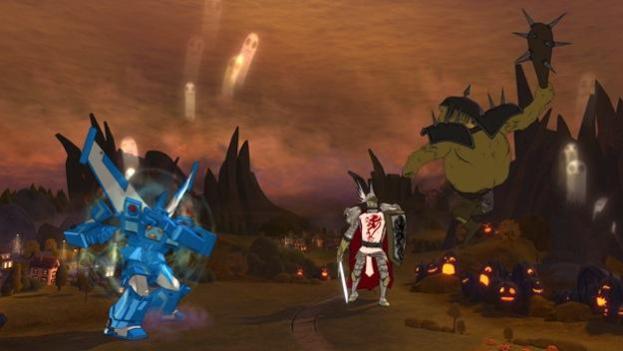
Halloween is one of the most sacred and imaginative holiday traditions of all time (at least in the States). Double Fine Productions’ cartoonish RPG revels in that childhood nostalgia and candy-mongering, crafting a game cleverly focused on magical costumes, monsters, trick-or-treating and all the beloved hallmarks of the holiday. With Costume Quest, player don the role of a child as he or she sets about regaining his or her kidnapped sibling, engaging in countless battles and slew of mini-games along the way. The writing is humorous, and while the combat may seem rudimentary at first glance, it naturally becomes more strategic as you learn to utilize the strengths of each costume, whether it be that of a ninja, unicorn, or robot. It totes plenty of personality, with a horde of hidden treasure to discover amid the three distinct areas, but it could move a little quicker. Still, like Halloween, it’s over before you know it.
Ni No Kuni— $20
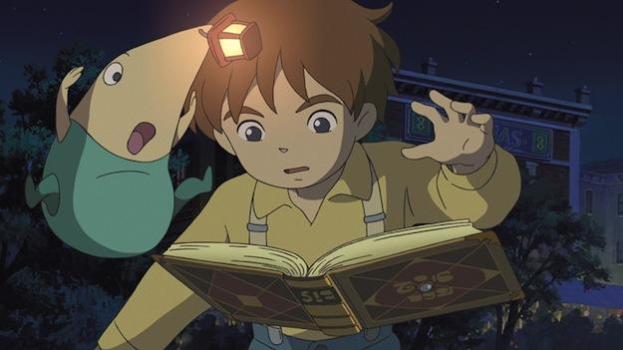
Ni No Kuni has all the makings of a great Japanese RPG, albeit with a twist. It’s centered on a young boy who must journey through a sprawling, parallel world to bring his mother back from the grave and conquer an ancient evil, but it’s exceedingly more charming than the premise makes it out be. It’s visually lush and imaginative, sporting cell-shaded graphics, and the kind of engrossing gameplay mechanics only Level-5 and Studio Ghibli could provide, while rooted in one of the most well-written storylines of any PS3 title to date. Its crux lies in the borderline-routine combat and leveling system, one intertwined with Pokemon-esque gait, but its uniqueness and 80 hours of gameplay are enticing enough to warrant a visit to the superbly-scored realm of Another World any day. Read our in-depth Ni No Kuni review for more details.
Dragon Age II — $20
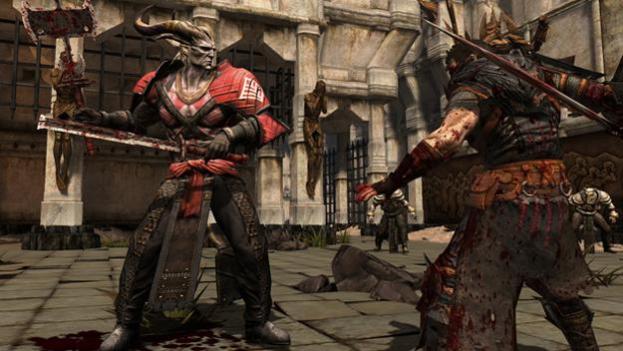
It’s becoming more apparent that the best games are the ones that dabble with the power of individual choice — and BioWare’s expansive second installment in the Dragon Age franchise is nothing short of intriguing in that respect. The politically-driven, framed narrative engulfs the player from the start, thrusting them into a decade-long journey in which they must follow the rise in power of destitute refugee known as Hawke. The combat is frantic and fun, whether you choose a mage, rogue, or warrior, and the visuals are admirable though repetitive given the lack of changing environments. Consequences, however big or small, ripple outward, providing a dynamic element to an otherwise modular main plot and party system. And like a good steak, it’s bloody beyond belief.
Final Fantasy VII — $10
Square-Enix may have promised there will be no Final Fantasy VII HD remake until the company creates a game with quality exceeding that of the VII, but that doesn’t mean you can’t relive what many have coined the greatest RPG of all time. The beloved Playstation classic is virtually the same on the PS3, carried by Cloud Strife’s gripping entanglement with Shinra and his nemesis Sephiroth, and ripe with polygonal gameplay and impressive CGI cutscenes that have held up remarkably well despite the 15 years since the game’s launch. The active-time combat system and character customization have aged well, along with Nobuo Uematsu’s remarkable soundtrack, and its bolstered by a solid 40-to-50 hours of gameplay that once spanned three discs. The world of Gaia is just as sweeping and captivating as ever, even if the classic typos sometimes pull you away.
DeathSpank — $15
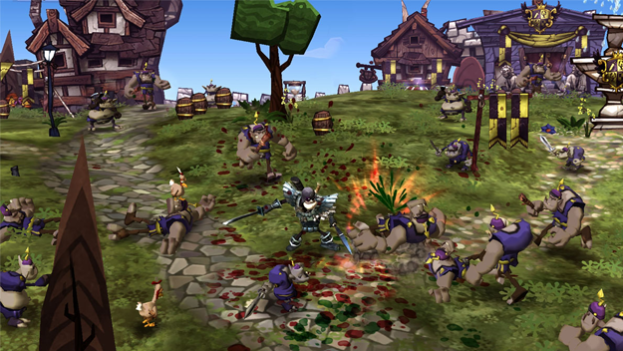
The first two Monkey Island games and Maniac Mansion were standouts given their satirical nuances, amusing humor and clever puzzle design. Game designer Ron Gilbert’s DeathSpank basks in many of the same hallmarks, yet the narrative is more of a hack ‘n’ slash than a brainteaser. It follows the game’s protagonist DeathSpank as he traverses a vibrant and loot-laden world as part of his diligent quest for an ancient artifact (aptly known as “The Artifact”). Like all of Gilbert’s work, the animation is quirky and the voice acting well-executed, doused in a familiar backdrop of 2D-3D animation and a catchy sleeper soundtrack. Questing can be a tad formulaic, especially considering the general lack of questing variety, but variation among spells, potions and other gameplay elements tweaks the mechanics before they ever become stale. And what other game on our roundup features rabid bearalopes?
Next Page: Best Action & Adventure Games
Action & Adventure
Castle Crashers — $15

It’s a pity it took the Behemoth’s Castle Crashers nearly two years to debut on the PS3 despite its initial 2008 release on the Xbox Live Arcade. It’s one of the best side-scrolling beat ’em ups on any platform, founded in a fantastically absurd medieval world of magic and knighthood, and bolstered by shinning character progression and a quirky sense of humor that remains authentically crude from start to finish. The plot isn’t anything spectacular — it revolves around four knights who must reclaim their respective princesses, overthrow a dark sorcerer, and retrieve a stolen gem — but the chaotic gameplay and crisp, cartoonish flare help produce a standout that easily exceeds lead artist Dan Paladin’s previous work with Alien Hominid. It’s challenging, whether playing alone or with up to three other players locally or via Xbox Live, and produces ample replay value given the sheer amount of unlockable characters available and additional content.
Shadow of the Colossus — $10 ($5 with PlayStation Plus)
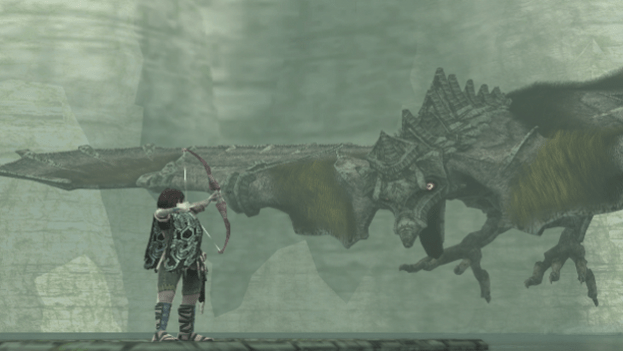
Considering the entire premise of Shadow of the Colossus revolves around the merciless slaying of 16 giant beings known as Colossi, it’s somewhat ironic to call the HD remake of the former PS2 title a strange beast. The plot is intentionally full of holes and trivial obstacles, leaving the player with a wide-open sense of wonderment and a sole goal to track down the aforementioned beasts in the hopes of bringing a girl back to life. The larger-than-life gameplay was—and still is— unparalleled, whirling around breathtaking atmospheric landscapes and epic cinematography, while essentially redefining what a boss battle can be. Encounters with the various beasts are puzzling, laced with swelling musical tension and often long-fought combat scenarios, and offer an almost cerebral experience at times. The drawback? The game is still too short despite the framerate and general visual overhaul.
Journey — $15
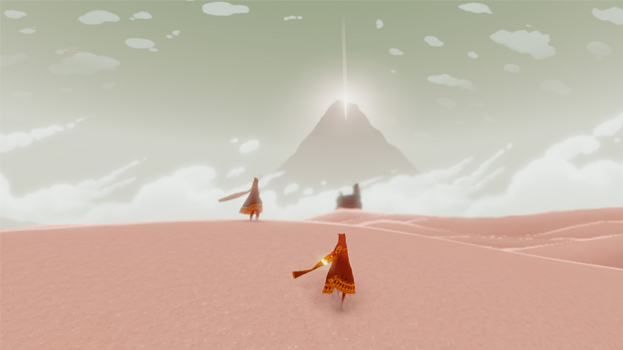
Thatgamecompany’s Journey often seems more like a work of art than a game, but who’s to say they can’t be one in the same? You play as a lone, red-cloaked figure traversing an enormous wasteland, constantly moving through fallen remnants of a once-thriving civilization toward an ever-foreboding mountain constantly spewing a ray of light from its peaked crevice. Other players occasionally wander into your world—and you theirs—but you cannot speak to them, nor do they feature any sort of identifying tag. Yet, it’s the lack of a coherent narrative and dialogue that make the gorgeously-crafted title that much more intriguing. The Grammy-nominated soundtrack is fittingly dynamic and enthralling, regardless of you’re gliding through the desert or sliding through an ancient temple, but the game is plagued by its short, three-hour duration. However, if wanting more is the only the only notable drawback featured in our Journey review, then I’d say the PS3 exclusive is in pretty good shape.
The Walking Dead — Free

With an entire media franchise currently in full swing, it’s safe to say Robert Kirkman’s award-winning zombie series has become more than a mere comic. The storyline, founded in partnership with Telltale Games, follows convicted criminal Lee Everett and a young girl in the events preceding the story of Deputy Sheriff Rick Grimes & Co, with a detailed plot dictated and tailored by the player’s actions and various decisions within the world. The dialogue is superbly executed, as are the frantic action sequences, and the character design is some of the best we’ve ever seen in a title. It’s true the controls can be rather sluggish, the fixed camera angles an utter nuisance, but the game is adorned by gorgeous, cell-shaded graphics that manage to make a ravaged apocalyptic landscape look inviting (a feat hard to do with the undead). Check out our full-length Walking Dead Game, Season 1 review for a detailed look as to why the game garnered our first perfect score.
Tokyo Jungle — $15

If there ever was a title on our roundup where one-of-a-kind gameplay had the ability to trump graphical presentation, Tokyo Jungle would be it. Set in post-apocalyptic Tokyo more than a decade after human abandonment, players can take on the role of 50 different animals as they attempt to survive on the mean streets using a combination of stealth and combat. The Survival mode is lengthy and laden with unlockables, while the time-consuming Story mode offers a set of specified set of scenarios and encounters pertaining to differing, individual creatures. It’s a game of routine and rank, governed by time and food, with plenty of challenges to spare. The overall mechanics can be lackluster and grueling at times, whether playing as a grazer or a predator, but the bizarre and outlandish nature of the title are what set it apart. Take a look out our Tokyo Jungle review, but trust me, you’ve likely never played anything like it.
Next Page: Best Sports & Recreation Games
Sports & Recreation
Zen Pinball 2 — Free
I wouldn’t call the digital-pinball marketplace exactly burgeoning or robust. Despite the lack of titles however, Zen Pinball 2 still offers one of the best virtual pinball experiences on any platform (new or old). The user interface is streamlined and concise without being overwhelmingly busy, while offering a notable selection of virtual tables to purchase or import from the game’s predecessor, Zen Pinball. Although the game doesn’t pride itself in being the most accurate pinball simulator –that title is better reserved for The Pinball Arcade and similar offerings – it still boasts remarkable in-game physics, flashy animations, and a score of lifelike sound effects guaranteed to evoke an unsung nostalgia for the seizure-inducing machines of the ’70s. Additionally, leaderboards and customizable controls help add replay value to an otherwise straight-shooting title, while the Star Wars and Marvel only up the ante on all things geeky.
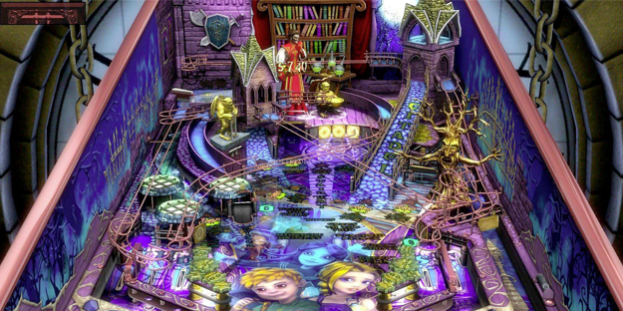
NFL Blitz — $15
The original NFL Blitz was a novelty in that it had the uncanny ability to entice a selection of gamers who weren’t necessarily sports fanatics. Midway’s updated rendition sports many of the same trademark components — the crazy tackles, limited playbook, the wacky unlockables — while dropping some of the more controversial hallmarks of the game. Yet, although the iconic late hits and post-play pileups are no longer in effects thanks to official NFL intervention, pass-interference and other borderline-shiesty aspects of the game remain intact. The cartoonish animations and overall gameplay mechanics remain grounded with arcade-style aesthetics, whether taking on your opponent in a seven-on-seven grudge match or battling through a team of robots in Blitz Gauntlet, and there are enough additional game modes to make the title feel fresh despite its throwback appeal. The controls are also simple and familiar, the two announcers comedic as ever, and yes, you can still play in Big Head Mode.
Wipeout HD — $8
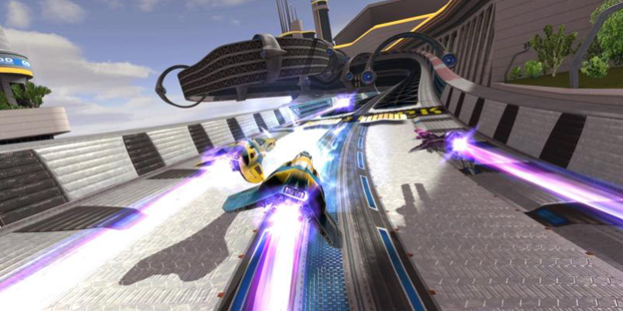
Saying Wipeout HD is still the same, cutting-edge combat racer it was in ’95 isn’t selling the game short. It was a landslide upon its initial debut, featuring a fully-licensed techno soundtrack and futuristic racing elements, thus helping solidify the genre as something other than purely a niche. The presentation is pristine and polished, abetted to a stunning 1080p visual overhaul and further enhanced by a yawning single-player experience. However, it’s also an immaculate repackaging of the original, meaning the content is essentially nothing new. The same ships, tracks, and music all make a return, along with the challenging campaign mode and competitive multiplayer options, but they do so at a blistering 60 fps. We can’t promise you’ll prefer the motion controls over using the classic analog sticks, but Wipeout HD remains the first-rate, white-knuckle, anti-gravity racer it was always was.
Hot Shots Golf: Out of Bounds Complete Collection: — $25 ($20 with PlayStation Plus)
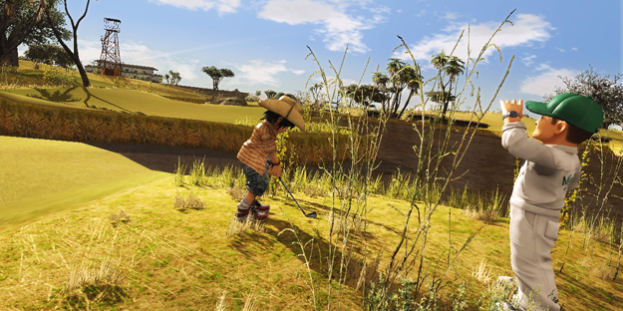
Don’t let the adorable characters and borderline-twee nuances belie an otherwise fantastic title. The Complete Collection builds upon the every previous Hot Shots game, incorporating traditionally-arcadey gameplay mechanics and the series’ trademarked unlockables, while offering welcomed, three-button-tap alternative to the stale meter system that’s been featured in virtual golf titles since the get-go. The cartoonish visuals are detailed and sharp, whether engaging in the single-player mode or opting for an online tournament with up to 50 players, and there’s enough zestful variation among the courses to give each its own personality and strategic advantages. Although game modes are fairly limited, each single-player offering can also be played online, allowing players to customize a unique avatar and enter online lobbies where they can link up with other players. The best part? Lag and disconnections are almost nonexistent given the title’s undemanding constraints.
NBA Jam: On Fire Edition — $15
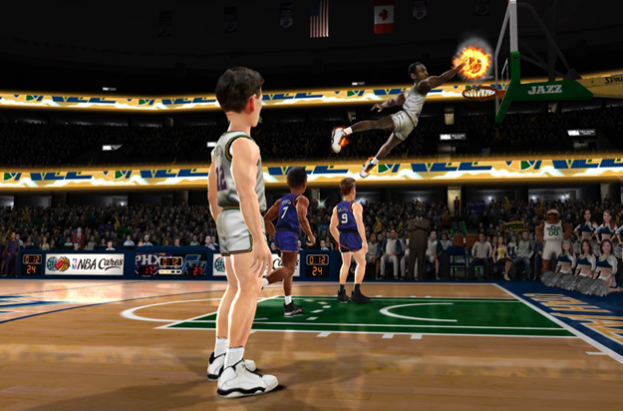
I could spend the next 150 words rambling on about the hallmark merits of NBA Jam: On Fire Edition — the razzle-dazzles, the boom-shakalakas, etc. — but I could never sum it up with the matching eloquence and and blunt reality of IGN‘s Tristan Ogilvie.”If you take a bowl of fruit, boil it down to chunks of pulp and add a little sugar, you get jam. Similarly, if you take the sport of basketball, boil it down to chunks of dunks, douse it in kerosene and set it on fire you get NBA Jam, arguably the greatest arcade sports series in the history of awesomeness.” It’s a bit of hyperbole, but Ogilvie is right in many ways. The latest edition in the recently-revamped arcade franchise sports a hodgepodge of unlockable content, fluid animations, improved game modes and plenty of Tim Kitzrow’s iconic commentary to go around.
Next Page: Best Shoot ’em up Games
Shoot ’em up
Dead Nation — $8
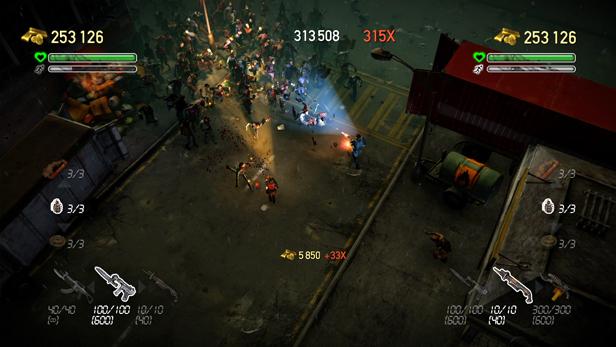
Walking Dead, Left 4 Dead, Dead Rising.. you get the idea. Zombie games are more ubiquitous than ever before, yet they still possess the uncanny ability to spur great video games. As a top-down shooter crafted by the same developing team as Super Stardust HD, Dead Nation treads a dimly-lit path in which the player must scour ten richly-detailed environments and combat a never-ending scourge of undead while collecting gold and searching for a cure for the virus that started it all. The two-stick gameplay is straightforward, regardless if you’re playing alone or alongside a companion online, yet it finds distinct grounding in the vast upgradeable arsenal and the sweeping magnitude of hidden bonuses. The plot and character design is ho-hum and lifeless — pun intended — but the incredibly eerie environments and assorted difficulty settings make it a quick thrill worthy of a second romp. That is, if you don’t get too frustrated by the spikes in difficulty.
Battlefield 1943 — $10
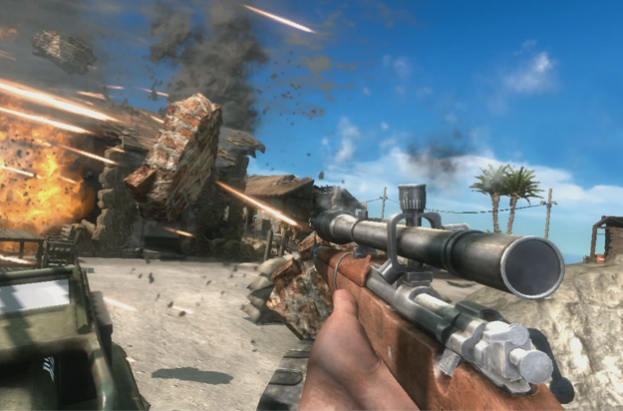
As you much as you might hope, few people play Battlefield solely for the single-player campaign. The multiplayer component of the title has always been where the FPS has thrived, fortified by supreme gameplay mechanics and an impeccably-balanced class system featuring your standard infantry unit, antipersonnel scout, and long-distance riflemen. The three Pacific-rigged maps may not be as dynamic and eye-popping as those coming to next-gen consoles — the game is going on 5-years-old at this point — but the tanks, planes, jeeps and other muscly vehicles add a greater amount of depth and tactical strategy to an otherwise lean and barebones shooter. Also, note that the title is exclusively built for multiplayer, meaning there’s no single-player campaign even offered, and pits two teams and up to 24 players against one another in varied WWII-era campaigns under a limited set of victory conditions.
Super Stardust HD — $10
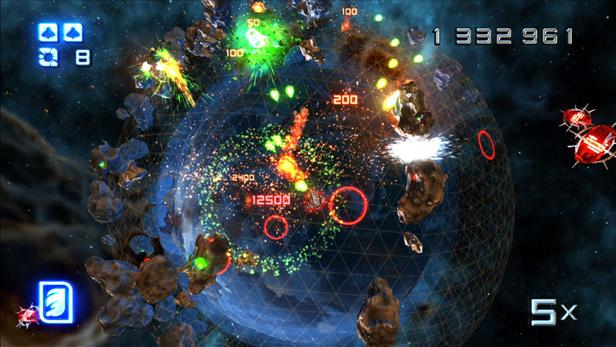
To me, Super Stardust HD has always been the kind of game you get when you splice Atari’s Asteroids with Bizarre Creations’ Geometry Wars and Nintendo’s Super Mario Galaxy. It’s essentially an updated version of the former Stardust title, coupled with the same nonexistent plot and simple controls, but retrofitted for the high-def age. With Super Stardust HD, players pilot a space fighter atop a spherical shield surrounding five different planets, obliterating anything and everything in sight using either an upgradeable laser, shard gun or flamethrower. The arcade shooter can get especially tricky, especially when maneuvering alongside a buddy via local play, yet the sheer number of particles bombarding you at any one moment is a hallmark not hinderance. Like similar titles, the load times are minimal, the enemies varied, and the replay value high. Still, boss battles can still be a real bitch.
Sine Mora — $10
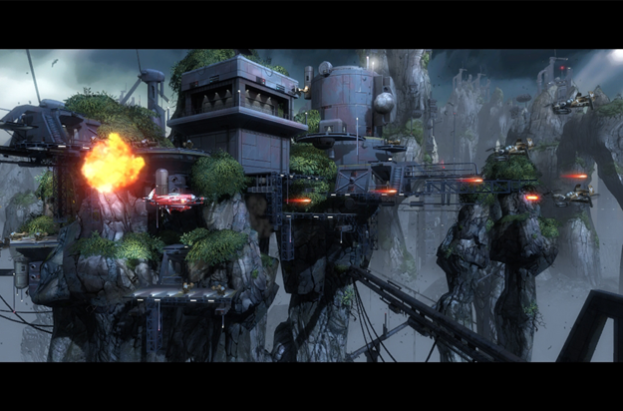
I’m sorry, but the classically-inspired, horizontal shooters of yesteryear have been beaten like a dead horse. However, Sine Mora is not one of the aforementioned titles. It’s a challenging horizontal shooter yes, but it’s cleverly rooted in time manipulation and a brutally-disheartening story revolving around a cohort of humanoid animals in the vain of Star Fox & Co. The short game catapults players into the beautifully-rendered, diesel-punk airspace of Seol — one dappled with typical 2D conventions such robust bosses and brawny power-ups — yet it relies on a more advanced time component than the generic health bar found on most shooters. Whereas being shot in a typical shooter may decrease the number of remaining lives, being shot in Sine Mora will decrease the amount of time you have left while destroying enemies will have the adverse effect. It may look kiddish at times, but forewarned, the anthropomorphic cat has a foul month.
Crysis — $20
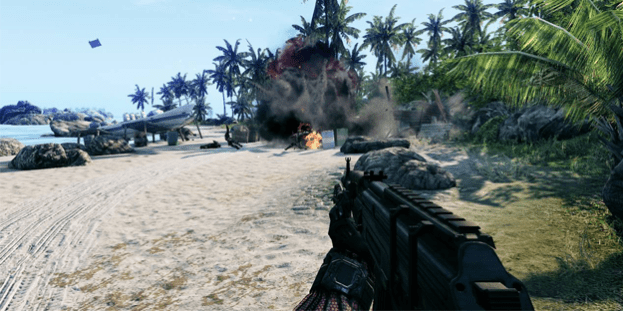
Crysis may not have aged like a fine pinot gris since its initial 2007 release on high-end PCs, but that hasn’t made the first-person shooter any less worthy of picking up in the six years in between. Aside from the visual downgrades, the console version is nearly identical to the PC version, centered around one Nanosuit-clad soldier who must overcome an army of North Korean soldiers and an alien menace on an island in the Philippines. Despite the nerfed visuals, the expansive environments still look remarkably great, strengthened by a suspenseful soundtrack and fitting effects. The game’s phenomenal emphasis on choice is as rollicking as ever and equipped with an open-ended design sure to encourage a myriad of strategies in either combat and stealth scenarios. Even though the checkpoint system and AI are prone to disappoint on more than one occasion, as outlined in our Crysis Console review, it’s still a stroll down memory lane worth taking.
Best Puzzle & Platformer Games
Puzzle & Platformer
Limbo — $10

Playdead, the Danish developer behind Limbo, proposes far more questions than it seemingly has answers for. The somber title, the company’s first, follows a young boy who finds himself trudging through the uninviting, black-and-white world of Limbo in search of his missing sister. Similar to Journey, the game makes up in beautifully-rendered visuals and phenomenal sound design what it lacks in substantial context and duration. The platformer is endowed with a bevvy of crafty puzzles, littered with ambiguous hurdles looming around every corner, and stocked with a mass of hidden secrets warranting a second and third playthrough. It’s not a particularly robust title, but it’s executed in such a manner that leaves you cautious and extremely apprehensive about the eerie world swirling around you, whether sprinting through a dense forest or escaping the clutches of a colossal spider. It will likely connect with you on some cerebral level — even if a single word is never spoken.
Closure — $15
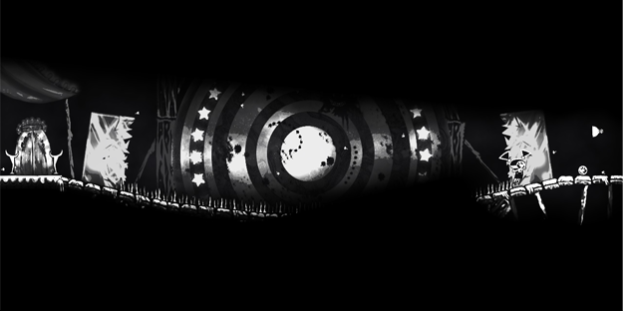
What you see is what you get, or so the premise of Closure goes. It’s an unnerving title, fraught with surreal animation and distantly-dour music, yet it’s a standout due to the cleverly-designed puzzles and creative implementation of light and dark elements. With Closure, the player dons the role of a spider-like demon, exploring the stories of three human characters through an abundance of dimly-lit monochromatic environments while searching for way to open the featured door in each level. It’s a trial-by-death platformer, coupled with a gradual learning curve, requiring you to manipulate light sources in order to reach the other side of the darkness or locate the shrouded key. Areas devoid of light aren’t only eerie and unsettling, but also intangible, meaning you fall directly into the abyss below if you don’t illuminate the path in front of you using the glowing orb at your feet, adjustable lamps, or other light sources at your disposal. Therein the challenge lies in the uncertainty of the next step, not in what you can see.
Shatter — $8

Breaking bricks is an age-old video game tradition. It may have began with Pong, but Sidhe Interactive’s Shatter is more of an expansive re-imaging of the arcade classic Arkanoid than it is the Atari’s ball-and-battle phenomenon. Not only does the inventive and colorfully-vibrant puzzler place players in control of a paddle armed with the ability shoot a ball, but it presents tools for sucking in and blowing air, thus offering new refinement methods for slightly altering the ball’s trajectory aside from the usual power-ups and special attacks. Each of the ten 3D-styled stages looks slick, allowing the player to effortlessly glide along the edge of the square or spherical frame, and completed when you’ve manage to shatter the last remaining brick. Boss battles are challenging and gripping, accompanied by a top-notch electronica soundtrack and immersive leaderboards that add a deeper ambiance and engagement to the title’s already-enticing pastiche. Shatter is a giant leap for an increasingly-vexed genre, one that couldn’t arrive sooner.
Sound Shapes — $15

Music has always been the compelling, atmospheric backbone to the best titles. However Sound Shapes takes said foundation to an entirely new level of immersion and accessibility. Controlling an amorphous blob, players run, jump, and climb their way through five themed levels, each constructed by a different composer and artist. Although it features platformer mechanics at heart — shuffling your avatar from one turntable to the next — collecting coins and interacting with the environments allows you to add notes and subsequently flesh out the various component’s to each level’s accompanying song. Some stages, like Beck and Pyramid Attack’s “Cities,” are melancholic ventures through apocalyptic cityscapes, while others like Deadmau5 and PixelJam’s “Invaderoids” spring your globule into cavernous worlds of stressed beats and a chiming synthesizers. The campaign is lengthy, even infuriating at times, but it’s the game’s built-in level creator that makes it worth revisiting. Need more? Check out our comprehensive Sound Shapes review.
Braid — $15
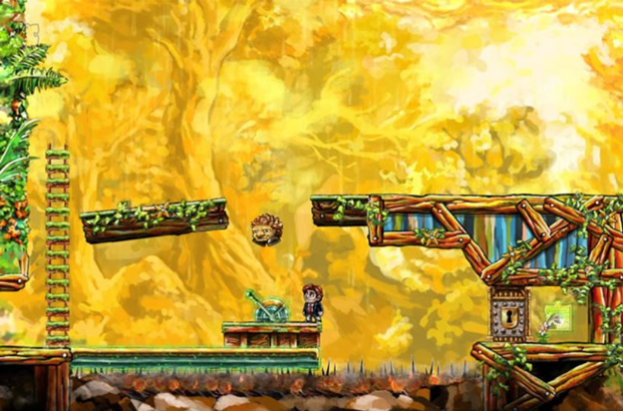
It’s not every day you run across a game with as many philosophical ruminations and mature, underlying themes as Number None, Inc.’s Braid. It’s a classic save-the-princess platformer in the broadest sense, but the emotionally-stirring gameplay mechanics are driven by what quickly evolves into an atypical and exceptionally-peculiar storyline that exceeds its water-colored, 2D restraints. Players ultimately run and jump through an assorted series of worlds as protagonist Tim, harvesting puzzles pieces telling of his woebegone regrets while solving commendable puzzles adrift in an air of melancholic nuances and moody background music. If the storyline isn’t distinct enough, Tim also possesses the ability to reverse time a la Prince of Persia, allowing players wipe away their previous failures and start anew at the push of the button. If there ever were any doubts regarding how talented rising indie developers are becoming, Braid will provide the answer.
Next Page: Best Fighting Games
Fighting
Scott Pilgrim vs. the World — $10

The movie adaptation of Bryan Lee O’Malley’s graphic novel may have been sleeper hit at the box office, but that doesn’t make the 8-bit, Michael Cera-less title of the same name any less captivating. With the game, players chose one of four distinct characters (Scott Pilgrim, Ramona Flowers, Kim Pine, and Stephen Stills), each touting their own individual moveset and personal upgrades purchasable through coins and experience. It’s a humorous side-scrolling brawler, revolving around each character’s quest to vanquish Flowers’ seven evil exes, and loaded with an eclectic bounty of wacky enemies and equally-absurd scenarios. The progression system is well-developed, the old-school aesthetics well-honed and it offers a viable slew of hidden and unlockable content for the face-punching aficionado. The lack of online and drop-in co-op can be tough to overlook, but the spirited chiptunes and nostalgic-tinged ambiance will keep you glued to the screen from beginning to end. Now, if only there was more Cera in the mix..
Skull Girls — $15
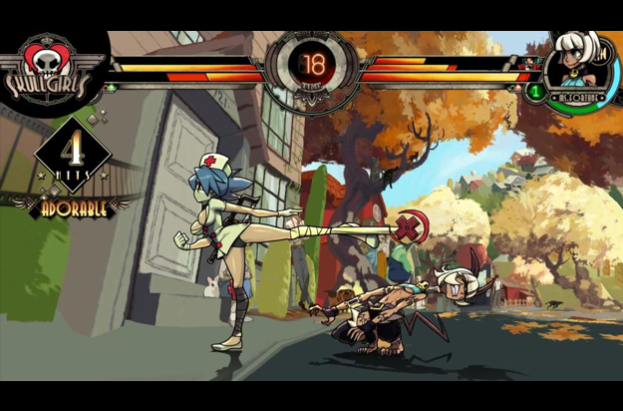
With titles like Bikini Karate Babes and Battle Raper, it’s safe to say Japanese fighting games aren’t devoid of the occasional sexual subtitles. While Skullgirls may posses the iconic short skirts and busty bosoms the genre is known for, it also sport a superbly-crafted and fast-paced fighting system, along with in-depth tutorials that lay the fundamental groundwork for truly playing any classic fighter. The hand-drawn 2D renderings are vivid and lush, bursting with colorful hues and fluid animations, yet many will still find the hypersexualization of the cast rather insulting and misogynistic. Each of the title’s eight female characters perform distinctly and diversely in their quest for the Skull Heart, whether fighting one-on-one or as a three-female squad akin to Marvel vs. Capcom 2, and come properly equipped with alternatives for the unblockable and infinite-looped cheapshots built-in to similar fighters. It’s the perfect amount of frantic, however, I sincerely doubt your mother would like it much. Shame.
Virtua Fighter 5 Final Showdown — $15

Let’s no sugarcoat it: Virtua Fighter 5 Final Showdown is a no-frills brawler, plain and true. Unlike the Street Fighter franchise and others similar suites of games, Virtua is a title firmly root in actual martial arts, from Shaolin Kung Fu to Tourou-Ken, and adorned with pages upon pages of command lists that utilize three standard buttons (block, kick and punch). The updated incarnation of the complex title runs smoothly, offering some of the most technical and balanced combat of any fighter in history, but the visuals have exactly improved substantially since the game’s ’06 debut. Yet, even without the affordable DLC character packs, the title provides ample bang for your buck considering the overhauled fighting mechanics, advanced tutorials and additional interactive stages. It’s easy to learn, though difficult to master, and finds excellent grounding in the competitive matchmaking. Just don’t expect much of the single-player mode.
Final Fight: Double Impact — $10
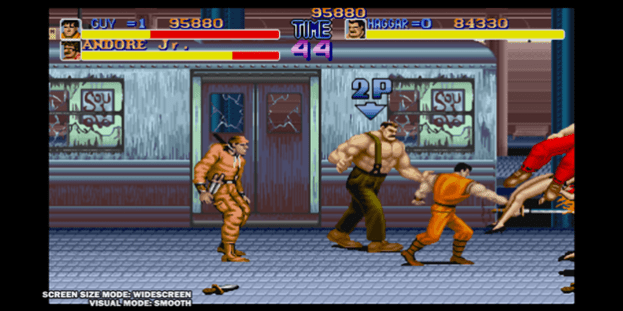
Everyone loves a good two-for-one special, especially when it involves two of Capcom’s most finest titles. Final Fight: Double Impact bundles the harrowing dragon-slayer Magic Sword and the laudable, mayoral brawler Final Fight. Although both revel in the original gameplay mechanics and an air of authentic presentation, complete with 16-bit sprites and options for blasting the original soundtracks, it’s Final Fight that sets the high-water mark. The game’s premise is gold: a street gang kidnaps the daughter of Metro City’s mayor, who also happens to be a beefy, retired pro wrestler with a knack for fist-pounding vengeance. With the help of his daughter’s boyfriend and his buddy, you combat your way through a motley crew of baddies, unleashing two-button fury and flying pile drivers on anyone in your path. The inability to pause is a setback, as is the lack of challenge that comes with infinite lives, but it’s just as rewarding as it was in ’89. And let me reiterate: pro-wrestler turned politician.
Super Street Fighter 2 Turbo HD Remix — $10
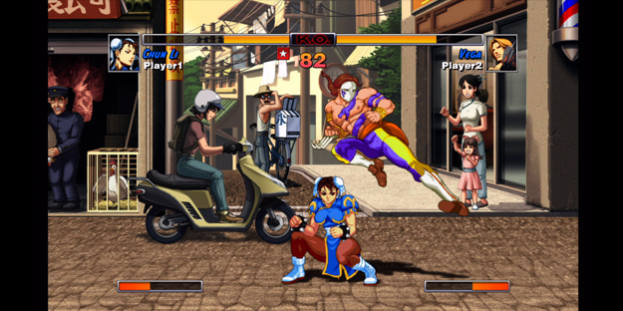
Capcom often seems like it updates and revamps its fighting titles more than Apple does its iPhone lineup, yet that doesn’t mean the reissues are purely half-baked ports. Super Street Fighter 2 Turbo HD Remix is one of the best, if not the best, classic title Capcom has ever brought to current-gen consoles. The talented team at Udon Entertainment has given the visuals a HD makeover, with crisp sprites and blazoned backgrounds, while Overclocked Remix lent its hand to remixing the original soundtrack. It’s specifically tailored for the hardcore gamer, featuring well-tuned, and balanced fighting mechanics crafted using input from some of the best Street Fighter players in the world, and devoid of unlockables that might otherwise distract from the game’s classic nuances. Quarter Match Mode is a blast, placing six players in a lobby where they can trash talk and challenge the top-rank player round-robin style, but the title is also bundled with myriad of both offline and online modes. Trust us, Ryu’s Hadouken never felt so damn sweet.
Next Page: Best Strategy & Simulation Games
Strategy & Simulation
PixelJunk Monsters — $10

Q-Games doesn’t like to be pigeonholed… ever. The developer’s PixelJunk lineup features a hodgepodge of game genres, from racers and platformers to the strategy-evoking PixelJunk Monsters. The latter is essentially a tower-defense title, akin to Fieldrunners and Kingdom Rush, sporting challenging gameplay and hand-drawn, 2D artwork. The gameplay mechanics are very much in line with similar titles, requiring you to construct a series of specialized and upgradeable towers to fend off waves of approaching enemies, but it’s the simplistic formula that gives the RTS-tinged title its casual and hardcore appeal. The broad swath of enemies and towers is balanced and well-executed, along with the coupled cooperative mode, and the accompanying music is catchy without becoming overly kitschy as you defend your way through each of the game’s 20 diverse stages. And although it won’t hold your hand, the difficulty curve is gradual enough for even the most incompetent of players — not that we’re saying your incompetent. That would be rude.
Worms 2: Armageddon — $15
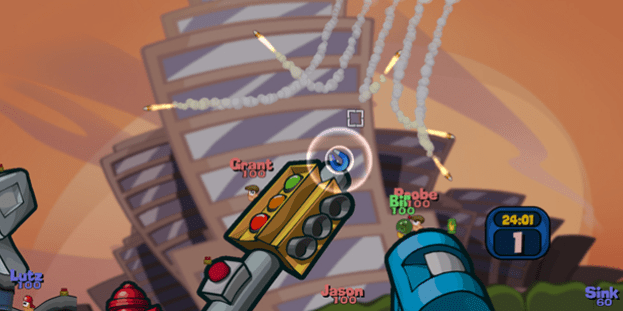
It feels strange to call Worms 2: Armageddon timeless, but it’s nearly impossible not to. The turn-based strategy titles places the player in control of a team of cartoonish worms, each armed with an expansive arsenal of new and returning weapons with which they must eradicate the opposing team. Like a greatest hits collection, Worms 2: Armageddon culls the best elements from each of the franchise’s offerings, from the PC titles to the PSP renditions thereof, and places them alongside a slew of new, customizable game modes. Although a humorous tone still swirls around the animations and general ambiance, the visuals and audio have undergone a welcome overhaul, becoming far more buffed and varied than they ever were before. New unlockables, such as those purchasable through the in-game store, also provide incentive to play the game’s 30-level campaign. However, I doubt many players will prefer playing the campaign when you can just as easily spend your time tossing Holy Hand Grenades at your friends online.
Magic: The Gathering (Duels of the Planeswalkers) — $10

Many people consider Magic to be the stuff of nerds — and maybe it is — but there’s no denying how enjoyable Magic 2013 can be if you relish all things fantasy-related and don’t mind spending a little time fumbling through the games eight customizable decks, each touting 17 unlockable cards. Depending on the format, the grounding premise for the game pits up to three players against each other as they attempt to drain one another’s health points using a score of beautifully-illustrated cards featuring a connonade of monsters, artifacts and spells. Aside from a few minor gameplay mechanics and the additional expansion components, the latest rendition of the title isn’t a far flung departure from its predecessors, offering improvements, and unlockables that are more so welcoming refinements than new content in the traditional sense. It’s a game of unrelenting strategy at its core, bolstered by online leaderboards for tracking single-player and co-cop scores, and one that makes Yu-Gi-Oh and Pokemon seem like child’s play.
Plants vs. Zombies — $10.50
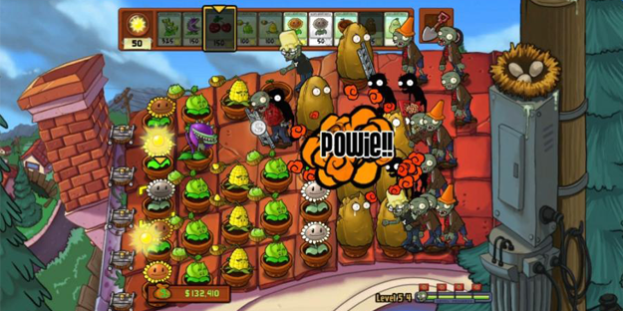
With Plants vs. Zombies: Garden Warfare lurking around the corner, there’s no better time to revisit PopCap’s standout introduction to the series. For those of you who somehow missed the boat, the title is a spin on the classic tower-defense genre, one utilizing a cornucopia of tactically-placed peashooters and cabbage-pults in lieu of your traditional, spell-casting defense system. As with any game in the series, players must continually defend their home from diverse horde of undead zombies mercilessly prowling across their lawn, pool and roof. The graphics and sound are not top-notch, though they do exhibit PopCap’s signature and highly-adorable amiableness, offering a humorous look at what could be an otherwise terrible situation. The PS3 rendition of the game features more than 50 single-player levels, five game modes, 21 minigames and a wealth of unlockable content should you decide to adhere to Crazy Dave’s ludicrous pricing. Pssh. Five bags of fertilizer should not cost $2,500.
Mushroom Wars — $10
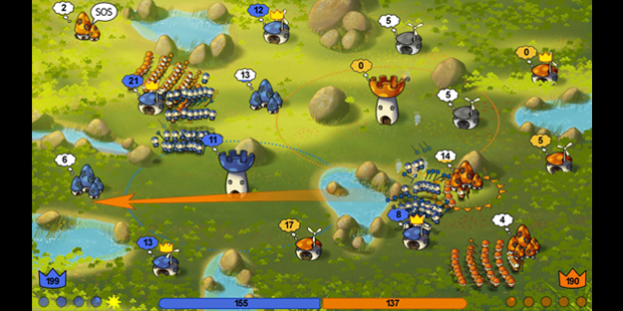
Not all RTS games are centered around tanks, aliens, and orcs. The whimsical and aptly titled Mushroom Wars is a game focused on colorful, warring mushroom tribes as they battle one another amid a series of small, yet fluid, environments. The gameplay mechanics are simple and straightforward, whether haphazardly sending troops to capture an opponents tower or merely upgrading one of your own, yet there’s a surprising amount of strategic depth considering how limited your commands are. The initial, 28-mission campaign is short and challenging regardless of the difficulty setting, and further aided by pleasant music and lighthearted troop sound effects. Keep in mind commands cannot be adjusted once given, and although there is no coupled map editor available, the bundled Skirmish levels allows you to engage in single battles against up to against three AI simultaneously in Conquest, Domination or King of the Hill game modes. It’s easily to pick up and difficult to put down — and sometimes that’s all you need.
What do you think of our picks for the best PSN games? There are sure to be standouts skirting beneath our radar, so which are some of your favorites and why? Let us know in the comments below.
